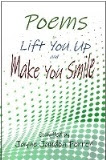
This week on my Your Daily Poem website, I featured a poem by Edwin Romond, who taught English in Wisconsin and New Jersey for 32 years before retiring. The first time I read it, when Edwin submitted it to YDP for consideration along with several others, I cried. I cried because the impact and sweetness of his memory are so profound. I cried because this poem brought to mind my own life-changing moments in school--passing blips of activity or conversation, seemingly insignificant at the time, that nonetheless buried themselves in my brain and still resonate half a century later. I cried because I fear today's students are missing out on these moments because teachers are so burdened with covering what's on THE TEST (pick one; they seem to be endless) that they can't spare an unscripted, serendipitous hour to gush over the gossamer art of butterfly wings or discuss why a rainy day makes us feel so melancholy. They certainly wouldn't derail the day's syllabus to sing beautiful ethnic ballads; most schools don't even have music class anymore and if they're lucky enough to still have a music teacher, there's probably some law in place by now that says you can't sing ethnic songs because it might offend somebody. . .or if you sing one ethnic ballad, you have to sing them all. (But then, chances are, today's students don't know any ethnic ballads anyway because their music education is coming from iPods and "American Idol," but I think that's a blog for another day.)
In any case, I wanted to share Edwin's wonderful poem with you (see link below). And I want to encourage you to appreciate those teachers in your life who give inspiration along with information; if you have any pull with legislators, please remind them that the classroom should be a place for learning, not memorization, and certainly not simply for prepping to pass a test. Being well educated encompasses soooooo much more than being able to diagram a sentence, dissect an earthworm, or determine a square root. It's being able to identify and savor special moments in life, connect with and care for our fellow man, spawn new ideas and create works of art born of nothing more than ingenuity.
Here's a suggestion: next time you need to give a teacher a gift (and June is just around the corner), instead of the ubiquitous Starbucks gift card, give Edwin Romond's wonderful b
 ook, Dream Teaching. Poetry book not your style? Here are some other wonderful books that recognize and celebrate extraordinary teachers:
ook, Dream Teaching. Poetry book not your style? Here are some other wonderful books that recognize and celebrate extraordinary teachers:- Teacher Man, by Frank McCourt
- The Thread that Runs So True: A Mountain School Teacher Tells His Story, by Jesse Stuart
- The Courage to Teach: Exploring the Inner Landscape of a Teacher's Life, by Parker Palmer
- Mentors, Masters, and Mrs. McGregor, by Jane Bluestein
- Extraordinary Teachers, by Fred Stephenson, Jr.
It's important that we reward outstanding teachers--by buying their books, praising them to their superiors, giving them thoughtful gifts, thanking them--frequently--and recalling their magic long after their tenure has ended. And remember: it's never to late to tell a teacher how he or she made a difference in your life.
Here's a review of Edwin's book by George Mason University instructor Erica Jacobs, and here is Edwin's beautiful poem, "Everything About Egypt." (If you cry when you read it, it's okay; you're one of many!)















